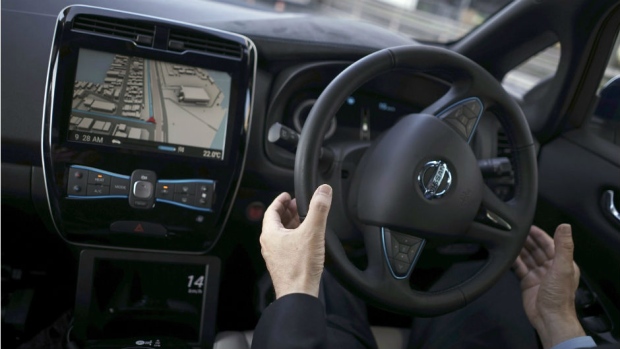Dec 20, 2016
BlackBerry open to partnering with Apple on self-driving car: Chen

BlackBerry (BB.TO) Chief Executive Officer John Chen is open to collaborating with Apple or Google parent company Alphabet in developing self-driving car technology. In an interview on BNN, Chen said he’s not confined to competing with the pair of American tech giants, and could see a scenario where BlackBerry’s expertise developed through its QNX unit could make its way into a joint project.
“I’m actually building a secure, foundational infrastructure for cars…to talk to each other,” he said. “I don’t know what Apple’s plan is, or Google’s plan is, in detail; we definitely could even be partners with them, we could provide them those solutions.”
Chen said his view extends from his agnostic approach to handsets: so long as they’re running BlackBerry software, he’s unconcerned with the hardware platform.
“We believe a car is basically software modules in the future. So we want to be able to provide tools and know-how into building those modules, like advanced driver assist, telematics, vehicle-to-vehicle communication,” he said. “We want to build a foundation on how these modules talk to each other securely. If anybody wants that know-how, we’d be more than happy to partner with them.”
Apple has so far remained mum on its plan for the self-driving car market, though the rumour mill has churned out plenty of speculation, including reports the world’s largest company has been poaching QNX engineers.
However, some industry veterans, including Martinrea Chair Rob Wildeboer, have expressed skepticism about the viability of either Apple or Google entering the self-driving car market. In a November 16 interview on BNN, Wildeboer said the pair should stay in their wheelhouse and produce consumer technology.
“We’ve done a little bit of work with Apple but the reality is: I think it’s a pipe dream that Apple and Google are going to be making cars,” he said. “I think they want the data for the cars and if you look at Google they now say they’re not making cars and Apple’s laid off half its work force in the context of building cars.”
Wildeboer told BNN the big technology companies may be underestimating just how difficult it is to build a full car.
“I think people are finding out it’s very difficult to make a very complex vehicle and the guys that are making vehicles are probably the guys that will continue making vehicles.”








